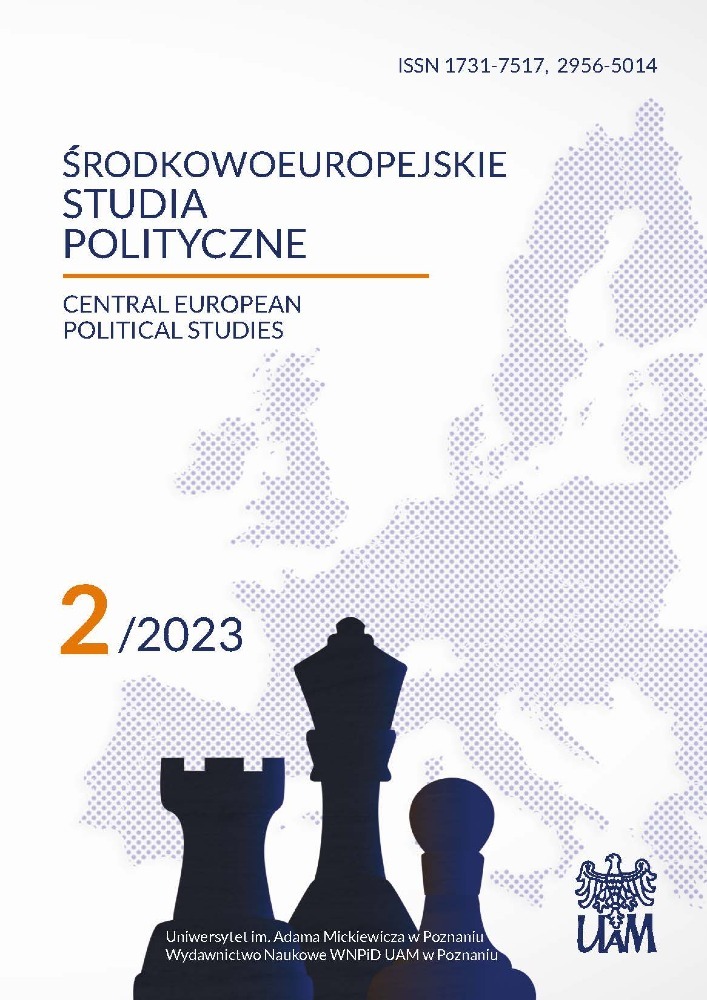Abstract
According to normative acts that constitute the basis of human rights protection systems, respect for human dignity is a guarantee of peace in the world. The meaning of this standard becomes more important in the resolution of international conflicts than human rights defenders could have imagined before the 21st century. None of the above-mentioned acts contains a definition of the inherent dignity of a human being. The concept is very broad and leaves much space to divergent interpretations due to cultural differences between individual regions of the world. Therefore, to maintain peace in the world, it should become a principle and a norm, a synonym for legally protected good. Moreover, its definition should constitute the basis of a universal doctrine.
References
Banaszak B., Biśta B. (2008), Prawa i wolności jednostki w konstytucyjnych państwach demokratycznych, w: Dylematy praw człowieka, red. T. Gardocka, J. Sobczak, Wydawnictwo Adam Marszałek, Toruń.
Bieńczyk-Missala A. (2008), Międzynarodowa ochrona praw człowieka. Wybór dokumentów. Wybór i opracowanie, Wydawnictwo Uniwersytetu Warszawskiego, Warszawa. DOI: https://doi.org/10.31338/uw.9788323529859
Chapman A. R. (2013), Human Dignity and the New Reproductive Technologies, w: Human Dignity in Bioethics: From Worldviews to the Public Square, red. S. Dilley, N. J. Palpant, Routledge, Abingdon.
Chmaj M. (2008), Konstytucyjna zasada godności człowieka i praktyka jej stosowania w orzecznictwie Trybunału Konstytucyjnego, w: Dylematy praw człowieka, red. T. Gardocka, J. Sobczak, Wydawnictwo Adam Marszałek, Toruń.
Chmaj M. (2016), Wolności i prawa człowieka w Konstytucji Rzeczypospolitej Polskiej, Wolters Kluwer, Warszawa.
Dupré C. (2015), The Age of Dignity: Human Rights and Constitutionalism in Europe, Hart Publishing, Oxford–Portland.
Finnis J. (2011), Natural Law & Natural Rights, Oxford University Press.
Harrari Y. N. (2018), 21 lekcji na XXI wiek, Wydawnictwo Literackie, Kraków.
Jasudowicz T., Czepek J., Kapelańska-Pręgowska J. (2014), Międzynarodowe standardy bioetyczne. Dokumenty i orzecznictwo, Warszawa.
McCrudden Ch. (2008), Human Dignity and Judicial Interpretation of Human Rights, “The European Journal of International Law”, vol. 19, no. 4. DOI: https://doi.org/10.1093/ejil/chn043
Nussbaum M. C. (2018), Nie dla zysku. Dlaczego demokracja potrzebuje humanistów, Fundacja Kultura Liberalna, Warszawa.
Osiatyński W. (2011), Prawa człowieka i ich granice, Znak, Kraków.
Seidler G. L. (1999), Kilka uwag o prawie natury, w: Powrót do prawa ponadustawowego, red. M. Szyszkowska, Interlibro, Warszawa.
Szyszkowska M. (2008), Teoria i filozofia prawa, Dom Wydawniczy Elipsa, Warszawa.
Watson J. (2016), A Universal Human Dignity: Its Nature, Ground and Limits, University of Exeter, https://ore.exeter.ac.uk/repository/bitstream/handle/10871/25977/WatsonJ.pdf?sequence=1, 20.11.2023.
Wąsowicz M. (2015), Prawo i obywatel. Rzecz o historyczno-prawnych korzeniach europejskiego standardu ustrojowego, Warszawa.
Zajadło J. (1989), Godność jednostki w aktach międzynarodowej ochrony praw człowieka, „Ruch Prawniczy, Ekonomiczny i Socjologiczny, r. LI, z. 2.
Zajadło J. (2008), Po co prawnikom filozofia prawa?, Wolters Kluwer, Warszawa.
License
Copyright (c) 2023 Dorota Michalska-Sieniawska

This work is licensed under a Creative Commons Attribution-ShareAlike 4.0 International License.

